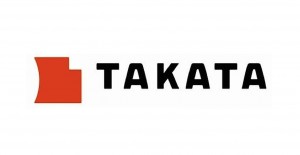
Takata and Autoliv are under investigation by the Brazilian government over price-fixing allegations.
Brazil’s antitrust agency is looking into whether Japanese auto parts maker Takata Corp., and its Swedish-American competitor Autoliv formed a cartel in the South American country to fix prices on seat belts, airbags and steering wheels.
Takata and Autoliv combined are virtually the only suppliers of airbags, a key piece of safety equipment mandated around the globe. Takata has come under fire in the past in the U.S. for price fixing and faces a host of lawsuits and recalls involving deteriorating and defective inflators. However, Autoliv, the larger of the two companies, has largely escaped criticism.
The auto parts cartel investigation is now a global enterprise and has led to major investigations in the U.S., the European Union, Japan and China as well as Brazil.
Brazil’s Administrative Council for Economic Defense said the investigation into Autoliv do Brasil Ltda. and Takata Brasil SA was initiated after the agency’s general superintendent found evidence the two companies fixed prices and created favorable market conditions through non-compete agreements.
The U.S. Department of Justice has described the ongoing investigation into price-fixing and bid-rigging in the auto parts industry as the largest criminal investigation it has ever undertaken and continued expand to cover additional products provided by suppliers, such as Takata.
As of March 2015, the Justice Department has fined 34 companies over $2.4 billion and sentenced 52 executives, including foreign nationals, to jail terms ranging between one and two years for participating in auto part cartels. The DOJ also recommended a sentence of one year for a defendant charged only with obstruction of justice.
The European Commission also has found that two European companies – SKF and Schaeffler and four Japanese companies, JTEKT, NSK, NFC and NTN with its French subsidiary NTN-SNR, operated a cartel in the market for automotive bearings. The EU has imposed fines totaling 953 million euros or more than $1 billion dollars in the bearing sector alone.
The companies colluded to secretly coordinate their pricing strategy vis-à-vis automotive customers for more than seven years, from April 2004 until July 2011, in the whole European Economic Area, the EU investigators found.
(Honda adds another 4.5 million vehicles to Takata recall. For more, Click Here.)
The companies involved in this secret cartel coordinated the passing-on of steel price increases to their automotive customers, colluded on requests for quotations and for annual price reductions from customers and exchanged commercially sensitive information. This occurred through multi-, tri- and bilateral contacts. The size of the EU market for automotive bearings is estimated to be at least €2 billion a year.
The majority of fines for anti-competitive practices set a record in 2014 with targeted auto parts makers with the sector capturing the attention of authorities in all major jurisdictions, according to one independent analysis.
(Click Here more about about Takata’s airbag problems.)
In the U.S alone, auto parts makers attracted 91% of fines issued by the DOJ Antitrust Division.
John Terzaken, partner and head of the cartel defense practice at Allen & Overy, said in a recent article the auto-parts case is massive in scope.
(To see more about BMW possibly abandoning manual transmissions for its M models, Click Here.)
“The auto-parts investigation is unquestionably the broadest and deepest international cartel case on record. It’s sprawling nature reflects the powerful incentives at play for companies to not only cooperate with antitrust authorities in existing matters but, more importantly, to find and self-report issues in surrounding markets,” Terzaken said.

Gee where have we seen price fixing before…perhaps the insurance industry or PC industry or crude oil industry? I have not heard of any crims in these industries going to prison though they should.